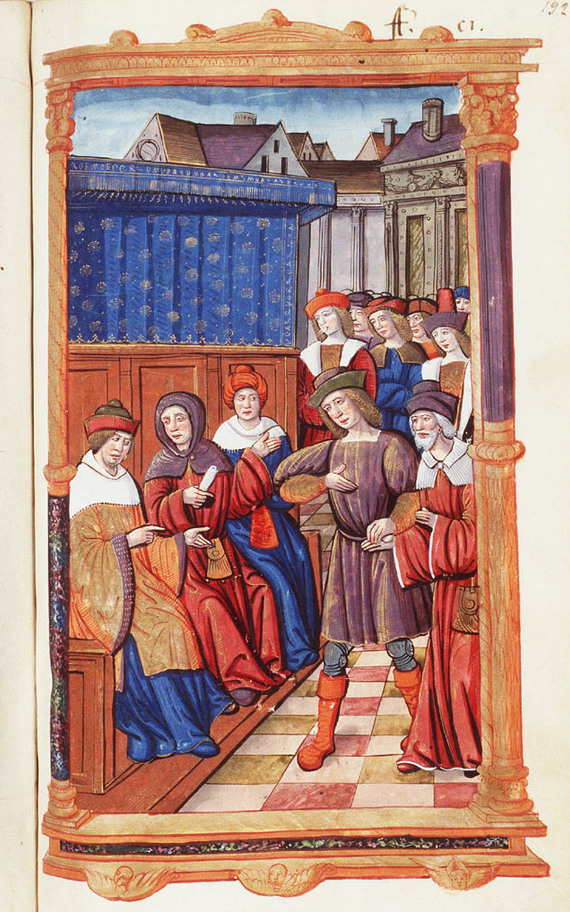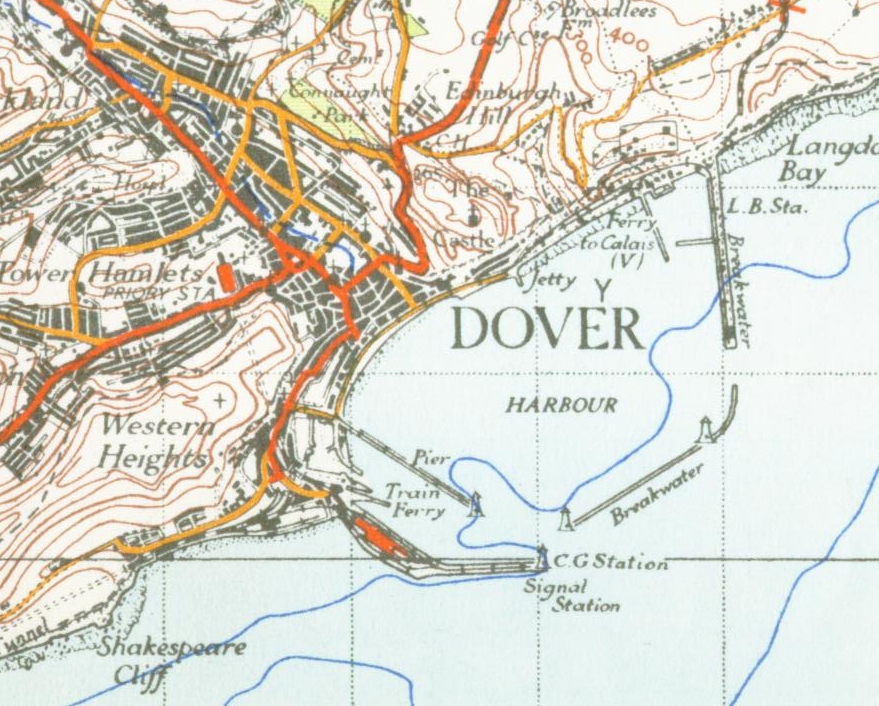|
Gaius Volusenus
Gaius Volusenus Quadratus (''fl.'' mid-1st century BC) was a distinguished military officer of the Roman Republic. He served under Julius Caesar for ten years, during the Gallic Wars and the civil war of the 40s. Caesar praised him for his strategic sense and courageous integrity. Italian origin The name Volusenus may be Etruscan in origin (as ''Volasenna''), but some scholars have attributed an Umbrian origin to the family, based on inscriptional evidence. Military service During the Gallic War Volusenus served as ''tribunus militum'' in the 12th Legion under the ''legatus legionis'' Servius Galba, and distinguished himself in battle when Galba was defeated by the Nantuates in 57 BC. In 55 BC Volusenus was sent out by Caesar in a single warship to undertake a week-long survey of the coast of south eastern Britain prior to Caesar's invasion. He probably examined the Kent coast between Hythe and Sandwich. However, when Caesar arrived at Dover with his forces he saw that la ... [...More Info...] [...Related Items...] OR: [Wikipedia] [Google] [Baidu] |
Floruit
''Floruit'' ( ; usually abbreviated fl. or occasionally flor.; from Latin for 'flourished') denotes a date or period during which a person was known to have been alive or active. In English, the unabbreviated word may also be used as a noun indicating the time when someone flourished. Etymology and use is the third-person singular perfect active indicative of the Latin verb ', ' "to bloom, flower, or flourish", from the noun ', ', "flower". Broadly, the term is employed in reference to the peak of activity for a person or movement. More specifically, it often is used in genealogy and historical writing when a person's birth or death dates are unknown, but some other evidence exists that indicates when they were alive. For example, if there are Will (law), wills Attestation clause, attested by John Jones in 1204 and 1229, as well as a record of his marriage in 1197, a record concerning him might be written as "John Jones (fl. 1197–1229)", even though Jones was born before ... [...More Info...] [...Related Items...] OR: [Wikipedia] [Google] [Baidu] |
Caesar's Invasions Of Britain
In the course of his Gallic Wars, Julius Caesar invaded Britain twice: in 55 and 54 BC. On the first occasion, Caesar took with him only two legions, and achieved little beyond a landing on the coast of Kent. The second invasion was more substantial, consisting of 800 ships, five legions and 2,000 cavalry. The force was so imposing that the Celtic Britons did not contest Caesar's landing, waiting instead until he began to move inland. Caesar eventually penetrated into Middlesex and crossed the Thames, forcing the British warlord Cassivellaunus to pay tribute to Rome and setting up Mandubracius of the Trinovantes as a client king. The Romans then returned to Gaul without conquering any territory. Caesar included accounts of both invasions in his '' Commentarii de Bello Gallico'', which contains the earliest surviving significant eyewitness descriptions of the island's people, culture and geography. This is effectively the start of the written history, or at least the proto ... [...More Info...] [...Related Items...] OR: [Wikipedia] [Google] [Baidu] |
Legatus
A legate (Latin: , ) was a high-ranking Roman military officer in the Roman army, equivalent to a high-ranking general officer of modern times. Initially used to delegate power, the term became formalised under Augustus as the officer in command of a Roman legion. From the times of the Roman Republic, legates received large shares of the military's rewards at the end of a successful campaign. This made the position a lucrative one, so it could often attract even distinguished consuls or other high-ranking political figures within Roman politics (e.g., the consul Lucius Julius Caesar volunteered late in the Gallic Wars as a legate under his first cousin, Gaius Julius Caesar). Diplomats and envoys sent by Rome were also given the title of legate. History Roman Republic The rank of legate existed as early as the Samnite Wars, but it was not until 190 BC that it started to be standardized, meant to better manage the higher numbers of soldiers the Second Punic War had forced t ... [...More Info...] [...Related Items...] OR: [Wikipedia] [Google] [Baidu] |
Sugambri
The Sicambri or Sugambri were a Germanic people who lived in the area between the Rhine, Lippe, and Wupper rivers, in what is now Germany, near the border with the Netherlands. They were first reported by Julius Caesar, who encountered them in 55 BC. They became a significant opponent of Roman imperial power in the Rhine region. After a major defeat by the Romans in 8 BC a significant part of the Sicambri were moved into Roman territory. Caesar categorized them as a Germanic people (''Germani''), although he did not necessarily define ethnicity in terms of language. Whether or not the Sicambri spoke a Germanic or Celtic language, or something else, is not certain. They lived in a contact zone where these two language families came into contact and were both influential. By the 3rd century, the region in which they and their neighbours had lived had become part of the territory of the Franks, which was a new name that possibly represented a new alliance of older tribes, possibly ... [...More Info...] [...Related Items...] OR: [Wikipedia] [Google] [Baidu] |
Quintus Tullius Cicero
Quintus Tullius Cicero ( , ; 102 BC – 43 BC) was a Roman statesman and military leader, as well as the younger brother of Marcus Tullius Cicero. He was born into a family of the equestrian order, as the son of a wealthy landowner in Arpinum, some south-east of Rome. He is known for his political career, governorship of Asia, time serving as a general in Gaul under Caesar, and for his relationship with Cicero. Biography Cicero's well-to-do father arranged for him to be educated with his brother in Rome, Athens and probably Rhodes in 79–77 BC. Around 70 BC, he married Pomponia (sister of his brother's friend Atticus), a dominant woman of strong personality. He divorced her after a long disharmonious marriage with much bickering between the spouses in late 45 BC. His brother, Marcus, tried several times to reconcile the spouses, but to no avail. The couple had a son born in 66 BC and named Quintus Tullius Cicero after his father. Quintus was aedile in 66 BC, praetor in 62 ... [...More Info...] [...Related Items...] OR: [Wikipedia] [Google] [Baidu] |
Ambiorix
Ambiorix (Gaulish "king of the surroundings", or "king-protector") ( 54–53 BC) was, together with Cativolcus, prince of the Eburones, leader of a Belgic tribe of north-eastern Gaul (Gallia Belgica), where modern Belgium is located. In the 19th century, Ambiorix became a Belgian national hero because of his resistance against Julius Caesar, as written in Caesar's ''Commentarii de Bello Gallico''. Name It is generally accepted that ''Ambiorix'' is a Gaulish personal name formed with the prefix ''ambio-'' attached to ''rix'' ('king'), but the meaning of the first element is debated. Some scholars translate ''Ambiorix'' as the 'king of the surroundings' or 'king of the enclosure', by interpreting ''ambio-'' as a thematized form of ''ambi-'' ('around, on both sides') meaning 'surroundings' or else 'enclosure' (cf. Old Irish ''imbe'' 'enclosure'). Alternatively, Fredrik Otto Lindeman renders ''Ambiorix'' as the 'protector-king', by deriving ''ambio-'' from the Proto-Indo-Eur ... [...More Info...] [...Related Items...] OR: [Wikipedia] [Google] [Baidu] |
Wantsum Channel
The Wantsum Channel was a strait separating the Isle of Thanet from the north-eastern extremity of the English county of Kent and connecting the English Channel and the Thames Estuary. It was a major shipping route when Britain was part of the Roman Empire, and continued in use until it was closed by silting in the late Middle Ages. Its course is now represented by the River Stour and the River Wantsum, which is little more than a drainage ditch lying between Reculver and St Nicholas-at-Wade and joins the Stour about south-east of Sarre. Toponymy Eilert Ekwall, a 20th-century authority on English place-names, wrote that the name "Wantsum" derives from an Old English word "wandsum", meaning "winding". Bede, writing in or before 731, mentioned the Wantsum (''Vantsumu'') in describing the Isle of Thanet, but he also recorded an alternative name: he described the church at Reculver as being ''juxta ostium aquilonale fluminis Genladae'', or "by the north mouth of the river G ... [...More Info...] [...Related Items...] OR: [Wikipedia] [Google] [Baidu] |
Geomorphology
Geomorphology () is the scientific study of the origin and evolution of topographic and bathymetric features generated by physical, chemical or biological processes operating at or near Earth's surface. Geomorphologists seek to understand why landscapes look the way they do, to understand landform and terrain history and dynamics and to predict changes through a combination of field observations, physical experiments and numerical modeling. Geomorphologists work within disciplines such as physical geography, geology, geodesy, engineering geology, archaeology, climatology, and geotechnical engineering. This broad base of interests contributes to many research styles and interests within the field. Overview Earth's surface is modified by a combination of surface processes that shape landscapes, and geologic processes that cause tectonic uplift and subsidence, and shape the coastal geography. Surface processes comprise the action of water, wind, ice, wildfire, and lif ... [...More Info...] [...Related Items...] OR: [Wikipedia] [Google] [Baidu] |
Claudius
Tiberius Claudius Caesar Augustus Germanicus ( ; ; 1 August 10 BC – 13 October AD 54), or Claudius, was a Roman emperor, ruling from AD 41 to 54. A member of the Julio-Claudian dynasty, Claudius was born to Nero Claudius Drusus, Drusus and Antonia Minor at Lugdunum in Roman Gaul, where his father was stationed as a military legate. He was the first Roman emperor to be born outside Roman Italy, Italy. As he had a limp and slight deafness due to an illness he suffered when young, he was ostracized by his family and was excluded from public office until his consulship (which was shared with his nephew, Caligula, in 37). Claudius's infirmity probably saved him from the fate of many other nobles during the purges throughout the reigns of Tiberius and Caligula, as potential enemies did not see him as a serious threat. His survival led to him being declared emperor by the Praetorian Guard after Caligula's assassination, at which point he was the last adult male of his family. Despite ... [...More Info...] [...Related Items...] OR: [Wikipedia] [Google] [Baidu] |
Richborough
Richborough () is a settlement north of Sandwich on the east coast of the county of Kent, England. Richborough lies close to the Isle of Thanet. The population of the settlement is included in the civil parish of Ash. Although now some distance from the sea, Richborough stood at the southern end of the Wantsum Channel from prehistory to the early medieval period. The channel provided a safe searoute from the continent to the Thames estuary and separated the Isle of Thanet from the mainland. The channel has now silted up, but prior to this, Richborough was an important natural harbour and was the landing place of the Roman invasion of Britain in AD 43. Until October 2008 there was uncertainty whether this was the site of the Claudian invasion of Britain; two ditches at the site which have been dated to the Roman period were interpreted as defensive structures; however, some archaeologists had favoured the theory that the landing took place in the vicinity of modern-day Chic ... [...More Info...] [...Related Items...] OR: [Wikipedia] [Google] [Baidu] |
Walmer
Walmer is a town in the district of Dover, Kent, in England. Located on the coast, the parish of Walmer is south-east of Sandwich, Kent. The town's coastline and castle are popular amongst tourists. It has a population of 6,693 (2001), increasing to 8,178 at the 2011 Census. Walmer is closely associated with its adjoining neighbour, the town of Deal - sharing many amenities and services and benefiting from Deal's High Street shopping area. Walmer railway station is on the Kent Coast Line. History Julius Caesar Julius Caesar reputedly landed on the beach here in 55 BC and 54 BC. It is only one possible landing place, proposed judging from the distances given in his account of the landings in his ''Gallic Wars''. In the 19th century it was thought that he had landed by Deal Castle – hence a house there with SPQR emblazoned on its gate – but in 1907 the landing point has been proposed to be half a mile further south, beyond the lifeboat station, and marked by a co ... [...More Info...] [...Related Items...] OR: [Wikipedia] [Google] [Baidu] |
Dover
Dover ( ) is a town and major ferry port in Kent, southeast England. It faces France across the Strait of Dover, the narrowest part of the English Channel at from Cap Gris Nez in France. It lies southeast of Canterbury and east of Maidstone. The town is the administrative centre of the Dover District and home of the Port of Dover. Archaeological finds have revealed that the area has always been a focus for peoples entering and leaving Great Britain, Britain. The name derives from the River Dour that flows through it. In recent times the town has undergone transformations with a high-speed rail link to London, new retail in town with St James' area opened in 2018, and a revamped promenade and beachfront. This followed in 2019, with a new 500m Pier to the west of the Harbour, and new Marina unveiled as part of a £330m investment in the area. It has also been a point of destination for many English Channel migrant crossings (2018-present), illegal migrant crossings. The Port ... [...More Info...] [...Related Items...] OR: [Wikipedia] [Google] [Baidu] |






